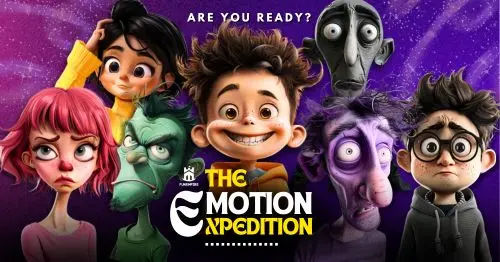Icebreaker Games for Students Singapore

If you are a student in Singapore starting the new school year or semester, ice breaker games will help you establish friends and get to know each other better.
The best icebreaker games for students in Singapore for 2025 are Scavenger’s Hunt, Two truths and a lie, Beach Ball Toss, Human Bingo, and Would you Rather.
Engaging icebreaker games are very important for students as they promote teamwork and build up a good relationship and cooperation among students who work and learn together.
By using these classical game ideas as part of your ice breaker ideas, you are assured of a lively, welcoming and interactive classroom environment.
Quick Summary
- Best icebreaker games for students in Singapore for 2025 are Scavenger’s Hunt, Two truths and a lie, Beach Ball Toss, Human Bingo, and Would you Rather.
- When selecting ice breaker games for students, do take note of the diversity of the study body to ensure inclusivity.
- Not only can ice breaker games in Singapore introduce new participants and make them feel more at ease with each other, but they also help bypass cultural differences among students from various backgrounds.
Our Selection Criteria
When creating criteria for icebreaker games for Singaporean students, we carefully considered these factors for an engaging experience:
- Effectiveness: Each ice-breaker was categorised in terms of whether it promotes positive interaction among participants, removes barriers and inhibitions in the group, or fosters a sense of camaraderie.
- Variety of Options: The ice breaker games had to be applicable to different group sizes, ages and interests.
- Ease of Participation: We favoured ice breaker games with easy rules, easy-to-understand instructions, and that didn’t require a lot of equipment, so that people would join in without any complications.
- Engagement Level: Students were committed and engaged in their learning experiences as evidenced by laughter, energy and positive interactions.
Key Considerations when Choosing Ice Breaker Games Singapore
- Cultural Sensitivity: Make sure the games are respectful and reflective of Singapore’s diverse ethnic mix.
- Language Accessibility: Think about the languages used among your students, and craft the instructions so that students can read and understand them easily, perhaps providing translations when necessary.
- Physical Space Requirements: Consider the physical spaces that are available, whether activities can be conducted indoors or if they require outside space.
- Time Constraints: Pick games in a timeframe that works, keeping activities brief so you’re not entirely taking over academic schedules.
- Age Appropriateness: Make sure the game is appropriate for the age group (number of students). If the group is large, consider the complexity of the game. If the group is smaller, consider the themes of the game. This will help ensure everyone has a fun time.
- Climate Considerations: Due to Singapore’s tropical climate, outdoor activities should be planned accordingly, with indoor settings preferred on rainy and excessively hot days.
Best Ice Breaker Games for Students in Singapore
1. Escape Room For Kids – The Emotion Expedition

| Team Size | 5 Pax – Unlimited Pax |
| Price | $28 per pax |
| Duration | 1 Hour Gameplay + 30 Mins Set Up & De-Brief |
| Activity Type | Indoor |
| Website | www.funempire.com/kids-escape-room |
Discover The Emotion Expedition Adventure! Prepare for an exciting journey with The Emotion Expedition, Singapore’s first mobile escape room game designed just for kids! Drawing inspiration from the beloved Pixar movie Inside Out, this unique adventure allows young explorers to immerse themselves in the vibrant emotions of 11-year-old Sam, featuring local settings like the enchanting Paiseh Park and the thrilling Kanchiong Spider Land.
Players will engage with quirky characters representing emotions such as Happiness, Disgust, Anxiety, Fear, and Embarrassment as they embark on a quest filled with mind-bending puzzles that challenge their problem-solving skills and foster teamwork and emotional intelligence. Each clue brings them closer to solving the mystery of Sam’s missing diary entry, helping kids understand and manage their own feelings in a fun, engaging way.
The best part? The Emotion Expedition can be played anywhere—whether at your location, in your own space, or even outdoors—making it ideal for schools, parties, or family gatherings. Ready to embark on this unforgettable adventure, assist Sam in navigating her emotions, and discover the true power of understanding feelings? Dive into the vibrant world of The Emotion Expedition and unlock the mysteries of the heart today!
2. Amazing Race – Merlion Feast @ Chinatown
.webp/tr:w-500)
| Group Size | 8 Pax – Unlimited Pax |
| Price | From $38 per pax |
| Duration | 2.5 Hours Gameplay + 30 mins set up & de-brief |
| Activity Type | Outdoor |
| Website | www.funempire.com/amazing-race/ |
FunEmpire’s Merlion Feast at Chinatown was an adventure that combined culture and competition in such a unique way.
As we explored Chinatown’s streets, uncovering clues and solving puzzles, real-time chatbot support kept us on track, guiding us whenever we needed an extra nudge.
The live leaderboard kept the energy high, giving us a fun sense of competition, and the rewards we redeemed at checkpoints added an element of surprise that kept us going.
The mission to discover the Merlion’s favorite food brought purpose to every step, making it feel like much more than a typical team-building activity.
3. Amazing Race – Escape From Pulau Belakang Mati @ Sentosa

| Group Size | 8 Pax – Unlimited Pax |
| Price | From $38 per pax |
| Duration | 2.5 Hours Gameplay + 30 mins set up & de-brief |
| Activity Type | Outdoor |
| Website | www.funempire.com/amazing-race/ |
FunEmpire’s Escape From Pulau Belakang Mati at Sentosa took hybrid team-building to new heights, seamlessly combining physical and digital challenges. We were immersed in Sentosa’s culture and history, working together to solve challenging puzzles that tested our wits and teamwork.
Real-time chatbot support kept us on track, providing instant hints that kept everyone engaged and the game interactive. The live leaderboard added a touch of competition, showing our points and rankings, and redeemable rewards at checkpoints gave us fun breaks and added motivation.
This experience stands out as a team-building adventure, uniting any group size and strengthening bonds. The thrill of navigating Fort Siloso gave it an urgent, immersive feel, as we cracked codes, evaded virtual guards, and tested our problem-solving abilities.
FunEmpire’s Amazing Race at Sentosa is more than just an activity; it’s a thrilling cultural journey filled with challenge, making it one of the top choices for team-building in Singapore.
4. Amazing Race – Marina Murder Mystery @ Gardens By The Bay

| Group Size | 8 Pax – Unlimited Pax |
| Price | From $38 per pax |
| Duration | 2.5 Hours Gameplay + 30 mins set up & de-brief |
| Activity Type | Outdoor |
| Website | www.funempire.com/amazing-race/ |
FunEmpire’s Amazing Race Marina Murder Mystery is hands down one of the most unforgettable team-building activities I’ve experienced in Singapore.
Imagine discovering the iconic Gardens by the Bay and Marina Bay with a twist—you’re on a mission to solve a high-profile murder mystery involving a pop star. It’s sightseeing with purpose, combining adventure and intrigue as you track down clues to crack the case.
The Real-Time Chatbot Support was a fantastic feature, giving us instant hints and guidance to keep us moving along. This interactive support kept us engaged and added to the flow of the game, allowing us to focus on collaborating and solving puzzles as a team.
The live Leaderboard showed our team’s progress, giving a friendly competitive edge that made each clue solved feel even more rewarding. Plus, we could redeem snacks and prizes at checkpoints, which kept us energized and motivated.
This wasn’t just a simple scavenger hunt; it was a full-on adventure that tested our problem-solving skills and deepened our teamwork. Every solved clue felt like a team victory, bringing us closer to the solution.
For any team looking to explore Singapore’s highlights in an exciting, collaborative way, this experience is unbeatable. It’s a perfect blend of adventure, teamwork, and mystery, making it a memorable team-building event. Ready to tackle the Marina Murder Mystery?
5. Two truths and a lie
In the ‘two truths and a lie’ game, students must tell classmates three interesting facts about themselves, only one of which is false.
Participants are invited to guess which of the three statements is the one lie, with hoots of laughter and head shaking When you conscientiously observe truths of this nature, it triggers curiosity during your private stroll – and perhaps inspirations for moral stories, too.
This game is not only a good icebreaker but a chance for students to practise active listening and connecting with each other.
6. Beach Ball Toss
Beach Ball Toss uses a beach ball decorated with questions which can be thrown around the classroom.
The student who catches the ball has to answer the question nearest to their right thumb.
This entertaining game encourages the students to share elements about themselves in a relaxed and playful context thus facilitating social connections and alleviating classroom tension.
7. Human Bingo
Human Bingo is a twist on the traditional Bingo game where each square on the bingo card represent an unique trait or experience.
Students walk around the room, interviewing their classmates to find someone who fits each description and signs their card.
The game not only creates interaction and networking among students, but also shows the diversity in the classroom.
8. Would you Rather
The game, called Would you Rather, requires the students to confront a series of dilemmas such as: Would you rather have a robot husband or wife? Would you rather be fed through a tube or go hungry? Would you rather go tobogganing using a fireman’s ladder or while playing the violin? Would you rather clap with your hands or by snapping? Would you rather have a massive head or a massive butt? Are you playing on a team or are you playing against each other?
Either way, the game gets people talking and arguing about why they would prefer one thing over another and, in so doing, provides a powerful way to get students thinking and understanding while also providing a really fun icebreaker to build a sense of community.
9. Trivia Quiz
The game Trivia Quiz is an educationl icebreaker which quiz students with questions in different topics such as general knowledge , current events , local culture , subjects of the school curriculum and so on .
It fosters friendly competition while encouraging effective teamwork as students work together to ensure correct answers are given and get the most points, thus forming closer bonds.
10. Guess the Celebrity
In Guess the Celebrity, the children have to identify a celebrity from a clue or blurry picture that the teacher displays.
Not only does this activity engage students’ pop-culture knowledge, but it also encourages teamwork in that the students must all work together to figure out the clues.
It’s a light-hearted game that can be used as an excellent icebreaker while at the same time injecting some competitive play into the classroom.
11. Balloon Questions
In the Balloon Questions game, each balloon contains a slip of paper with a question.
Students take turns popping balloons and answering the question found inside.
This interactive game will foster an air of suspense and surprise, promoting students to talk about themselves in an engaging light.
12. Charades
Charades is a classic party game in which students mime a word or phrase – without speaking – while their team tries to guess what it is.
This game is not only a good warm-up but also encourages creativity and thinking on our feet.
The only thing that makes it customisable for almost any subject is the fact that it’s completely flexible in whatever you want to use it for in your classroom.
13. Pictionary Relay
Pictionary Relay puts a fast-paced, team-oriented spin on the classic game of Pictionary.
The objective of the game is for teams to race each other in order to guess a sequence of words or phrases correctly, passing the marker to the next person only after the guess is made.
This variation adds both cooperation and competition, creating a sense of urgency as teams try to guess what’s being drawn and beat the opposing team.
14. Scavenger Hunt
Scavenger Hunt games draw students away from the drab classroom into an exciting treasure hunt for objects or information scattered across a designated area or that is the result of other problem-solving tasks.
This icebreaker game also promotes teamwork by forcing everyone to come together and work together in groups to beat their opponents in the hunt.
This interactive task not only motivates the students but it also develops their critical thinking and creativity in a fun way.
Icebreaker Games for Students Singapore
Integrating icebreaker games in teaching promotes unity and makes learning fun, and is also a good option for team building events.
It’s a great way to connect with all students, with games such as scavenger hunts and ‘You Have Two Minutes, Would You Rather’.
Teachers can then create a conducive learning environment where students are more willing to participate in class, share and learn together.
These simple yet enjoyable activities and games are vital for every teacher to foster a strong classroom community.
Frequently Asked Questions (FAQ)
If you have any questions about icebreaker games for students in Singapore, check out the frequently asked questions (FAQ) below:
What are the best icebreaker games for students in Singapore?
The best icebreaker games for students in Singapore are Scavenger’s Hunt, Two truths and a lie, Beach Ball Toss, Human Bingo, and Would you Rather.
How can teachers in Singapore use physical movement during icebreaker activities to improve student engagement?
When teachers bring in activities where students sit, students write, students stand or move around, they increase these levels of engagement. In icebreakers, having physical movement, such as standing up or changing positions to hold preferences, can energise classrooms and help students get to know each other.
Can middle school and high school students both benefit from these icebreaker games Singapore?
Definitely! These icebreaker games would work well for both middle school and high school students. They are versatile and appealing to a wide range of ages, so they can be simplified and adapted to work well for students of any level.
Are these icebreaker games suitable for other students, such as university students or adult learners?
Yes – in many cases, these games can be ‘scaled up’ to work with older (say, university age or adult) audiences by simply picking the ones that will work best with the dynamics and interests of the group (perhaps with some tweaking of the content to make it more personally relevant or conceptually complex).
How can these games be modified for small groups or classes with a large number of students?
For small groups, such as classes of 12 or 20 kids, you can do a game like ‘Two truths and a lie’ or ‘Beach Ball Toss’ in a single round, and everyone gets a turn. For classes of 40 or more kids, you might want to consider having groups of students sit in circles and play the game using the small group format, or putting students into teams and playing the games in two or three rounds so that students get more than just one chance to play. Otherwise, the game becomes unwieldy and not everyone gets a chance to participate.
How do the icebreaker games cater to the needs of younger students?
The games for younger students, like ‘Balloon Questions’ or our ‘Charades’ game, are open enough that they don’t require much background or explanation, and don’t involve any complicated setup or rules – in many cases, all they need is for the teacher to provide something to be mimed or described. They’re very quick to set up, and easy for the students to enjoy playing and interacting with each other.
Can students create their own icebreaker games or modify existing ones?
Yes, indeed! There are several ideas you could. As a kind of icebreaker, you could have students just brainstorm game ideas and see what emerges from that.
Can classic board games be used as icebreakers in classrooms?
Yes, classic board games can provide excellent icebreakers for the classroom. Given that most board games involve interaction, social strategising and team work (eg ‘Monopoly’ or ‘Clue’), it’s just a matter of slightly tweaking the rules to fit the size of a classroom and the available time to use them as icebreakers and community builders within a class.
How can giant board games enhance team-building activities?
Nothing builds a relationship better than giant board games – think life-sized chess, or even life-sized Jenga. This requires teams to physically and strategically work together in a way that demands decisions and communication on the fly.
Are virtual game-based activities effective for virtual team building?
The virtual amazing race, escape room and game show, where teams play virtual games, are effective for virtual team building as it involves problem-solving in a series of challenges that require teamwork, communication and creative thinking from every team member to overcome obstacles as a group. Likewise, this can be accomplished by opening the floor to a discussion to foster a team bond and create a channel for remote colleagues to cooperate even as they are miles apart.
Can virtual escape rooms develop problem-solving skills in students?
Virtual escape rooms are a valuable resource for helping students develop stronger problem solving skills. By placing participants in an immersive scenario that requires critical thinking, logic, and teamwork to crack the puzzles and escape the room, students are able to develop their problem solving skills in a fun and engaging virtual means.



